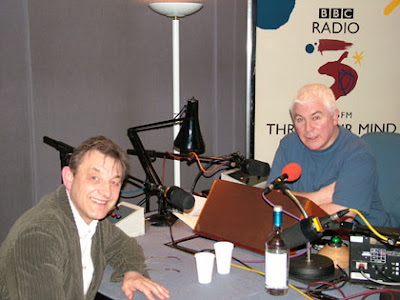The BBC is performing badly
 When a business performs badly its share price drops. Yesterday's news that the UK government has imposed a six-year below inflation cap on the BBC's annual license fee increase was the public sector equivalent to a plunge in share price, and it confirms what a lot of people have been saying for a long time - the BBC is performing badly. The license fee decision prompts a Guardian leader to say "a measure of economy is overdue in some parts of the organisation, as extravagant pay deals for Jonathan Ross and other celebrities have recently shown", but this does not stop predictable bleating from the BBC as today's main Guardian story reports:
When a business performs badly its share price drops. Yesterday's news that the UK government has imposed a six-year below inflation cap on the BBC's annual license fee increase was the public sector equivalent to a plunge in share price, and it confirms what a lot of people have been saying for a long time - the BBC is performing badly. The license fee decision prompts a Guardian leader to say "a measure of economy is overdue in some parts of the organisation, as extravagant pay deals for Jonathan Ross and other celebrities have recently shown", but this does not stop predictable bleating from the BBC as today's main Guardian story reports:'In an email to staff, the BBC's director-general, Mark Thompson, admitted the reported settlement was a "real disappointment" and warned it would mean "some very difficult choices" for the BBC. "Even with a settlement as tight as this one we would still remain totally committed ... to doing everything we can to maintain the quality and creativity of our services to the public," he said.
On An Overgrown Path says the BBC can still produce great programmes such as the radio documentary on Brother Roger of Taizé that I praised here this week. But quality content in the form of BBC Radio 3 is being remorselessly dumbed down to
 become Radio 2.5. In recent weeks we have had Aled Jones presenting a 'lad's guide' to Christmas choral music, and In Tune celebrating multi-culturalism with a dittie about Polish plumbers that would not have been out of place in a Murdoch tabloid newspaper. Meanwhile presenters are using their newspaper columns to defend the network's dodgy habit of claiming commercial recordings as the Corporation's own work, and elsewhere top BBC TV personality Jeremy Clarkson is being reprimanded for homophobic comments. It is clear that the quality and creativity of BBC services was in decline long before this license fee cap was announced.
become Radio 2.5. In recent weeks we have had Aled Jones presenting a 'lad's guide' to Christmas choral music, and In Tune celebrating multi-culturalism with a dittie about Polish plumbers that would not have been out of place in a Murdoch tabloid newspaper. Meanwhile presenters are using their newspaper columns to defend the network's dodgy habit of claiming commercial recordings as the Corporation's own work, and elsewhere top BBC TV personality Jeremy Clarkson is being reprimanded for homophobic comments. It is clear that the quality and creativity of BBC services was in decline long before this license fee cap was announced.* Every UK household has to pay the annual BBC license fee, including students living in private accomodation. The fee currently stands at £131.50 ($250)
* The £6 $5.5m) million annual salary to BBC presenter Jonathan Ross compares with an annual new music commissioning budget of around £350,000 ($650,000)
Now read how the BBC Annual Report gets its facts wrong - and On An Overgrown Path's Christmas Quiz is to identify the contents of the bottle in the foreground of my picture of the BBC In Tune studio with presenter Sean Rafferty and Trevor Pinnock. (Photo credit BBC).
Any copyrighted material on these pages is included as "fair use", for the purpose of study, review or critical analysis only, and will be removed at the request of copyright owner(s). Report broken links, missing images and other errors to - overgrownpath at hotmail dot co dot uk.









Comments
Sp- see me